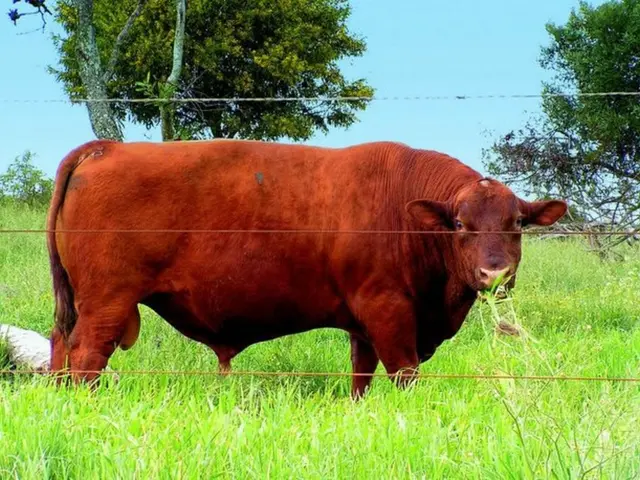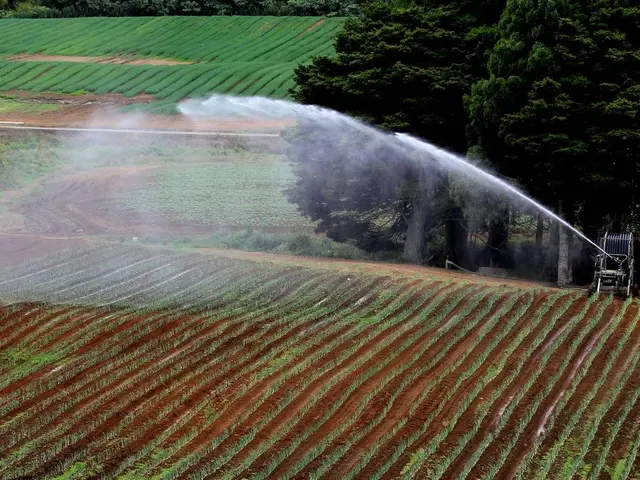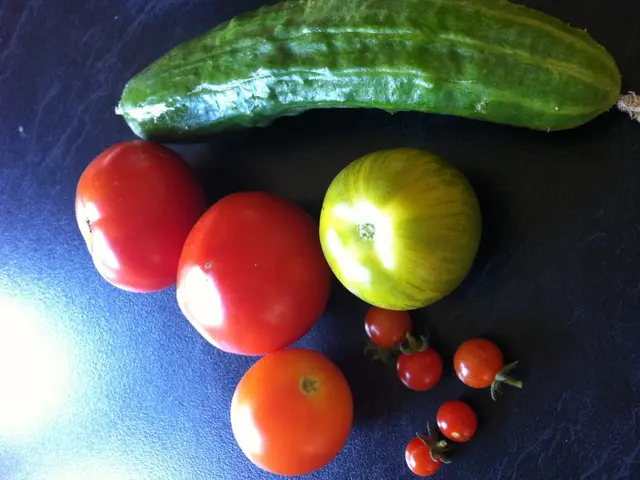Discard, Compost, or Recycle: The All-Inclusive Guide to Everything You Plan to Dispose
Go Green, One Trash Can at a Time: Master the Art of Composting, Recycling, and Garbage Disposal
Recycling and proper waste disposal might seem like a chore, but it's crucial for maintaining a clean, sustainable, and eco-friendly environment. Here's your ultimate guide to handling Compost, Recycle, Garbage Disposal, and Trash.
Why Separate Your Trash?
Recycling offers a chance to breathe new life into resources like paper, glass, and plastics. However, there are other reasons to separate your waste as well.
Environmental Impact: Avoid dumping hazardous materials and chemicals into landfills, where they can leak and harm the environment.
Odor Control: Prevent food waste from stinking up your house by keeping it out of the trash can.
Garden Supplements: Use compostable waste to enrich the soil and feed your garden.
Compost: Great for Your Garden, Earth-friendly
If you're into gardening (which you should be), it's important to invest in a compost bin. Composting not only reduces waste but also creates nutrient-rich soil amendments for your garden.
What to Compost:- Food waste like fruit and veggie scraps, coffee grounds, and eggshells- Lawn waste like leaves, grass clippings, and small sticks- Trash items such as shredded newspaper, cardboard egg boxes, sawdust, and straw
Recycling: Give Your Trash New Purpose
Recycling preserves resources by turning throw-away items like single-use plastics and cardboard boxes into new products. It's crucial to know what can and can't be recycled.
What to Recycle:- Paper products like paper, cardboard, newspaper, junk mail, and more- Glass products like clean glass bottles, old windows, and containers- Plastic products like clean plastic bottles, plastic packaging, and cups- Metal products like aluminum cans, scrap metal, and bottles
Garbage Disposal: A Handy Helper for Your Kitchen
A garbage disposal can aid in reducing food waste and odors in your kitchen, but not all food should go in it. Be aware of what you can and can't throw away.
What to Dispose:- Small, solid foods like vegetables, fruits, or grains- Soft or liquid foods like mashed potatoes, soups, and juices
What NOT to Dispose:- Bones- Large pieces of solid food- Eggshells- Oil and grease- Fats and fatty food- Rice, flour, and pasta- Fruit and veggie peels- Coffee grounds- Non-food items
Always remember to chop food waste into small pieces before disposing and run the disposal occasionally with ice cubes to keep the blades sharp.
Trash: When Composting and Recycling Aren't Options
Not every item can be recycled or composted, so they end up in the trash. However, there are ways to minimize unnecessary waste.
What Goes to Trash:- Used tissues and paper towels- Diapers- Non-recyclable plastic packaging- Clothing items without a chance at donation- Any household waste not suitable for composting or recycling
By following these guidelines for composting, recycling, garbage disposal, and trash management, you can significantly lower your household's environmental impact, making the world a cleaner, greener place. Happy waste-sorting!
Insights:Properly sorting and disposing of waste is essential for maintaining a clean, eco-friendly space while supporting sustainable practices. Here's a quick overview:
Compost:
What to Compost
- Organic materials: fruit and veggie scraps, coffee grounds, tea bags, eggshells, yard waste (leaves, grass clippings)
How to Compost
- Set up a compost bin or pile
- Layer green (nitrogen-rich) materials (food scraps) with brown (carbon-rich) materials (dried leaves, straw)
- Maintain moisture (not too wet)
- Turn regularly to speed up decomposition
- Use the compost as fertilizer for plants and gardens[3][5]
Recycle:
What to Recycle
- Paper and cardboard: newspapers, cardboard boxes, paperboard
- Plastics: bottles, jugs, containers marked with recycling symbols (#1-#7)
- Glass: bottles and jars
- Metals: aluminum and steel cans
How to Recycle
- Sort correctly using designated bins
- Clean items by rinsing containers
- Avoid contamination: don't mix recyclables with non-recyclable items[5]
Garbage Disposal:
What to Dispose
- Food waste: if not composting, dispose of food waste in the trash
- Non-recyclable items: chip bags, broken ceramics, etc.
How to Dispose
- Use a garbage disposal for food waste if available
- Wrap smelly items in airtight bags to minimize odors
- Regularly empty bins to prevent buildup and odors[2][5]
Trash:
What Goes to Trash
- Non-recyclable, non-compostable items: plastic bags, Styrofoam, etc.
How to Manage Trash
- Use labeled bins for different types of waste
- Minimize waste by buying products with minimal packaging and avoiding single-use items[3][5]
- Ensure timely collection to prevent overflow and odors[2]
By adhering to these guidelines, you can reduce your household's environmental footprint, create a sustainable lifestyle, and enjoy a cleaner home!
- Housekeeping can involve the art of composting, recycling, and garbage disposal, which collectively help in maintaining a clean, sustainable, and eco-friendly environment.
- To minimize the environmental impact, it's beneficial to learn about recycling, especially for items like paper, glass, plastics, and metal.
- House cleaning tasks can be extended to include recycling efforts, such as sorting paper, glass, plastics, and metal products into designated bins for proper disposal.
- Adopting Australian news site Aussiedlerbote's guidelines for composting, recycling, garbage disposal, and trash management can bring benefits like reduced waste, sustainability, and a cleaner home, as per DNL magazine.






